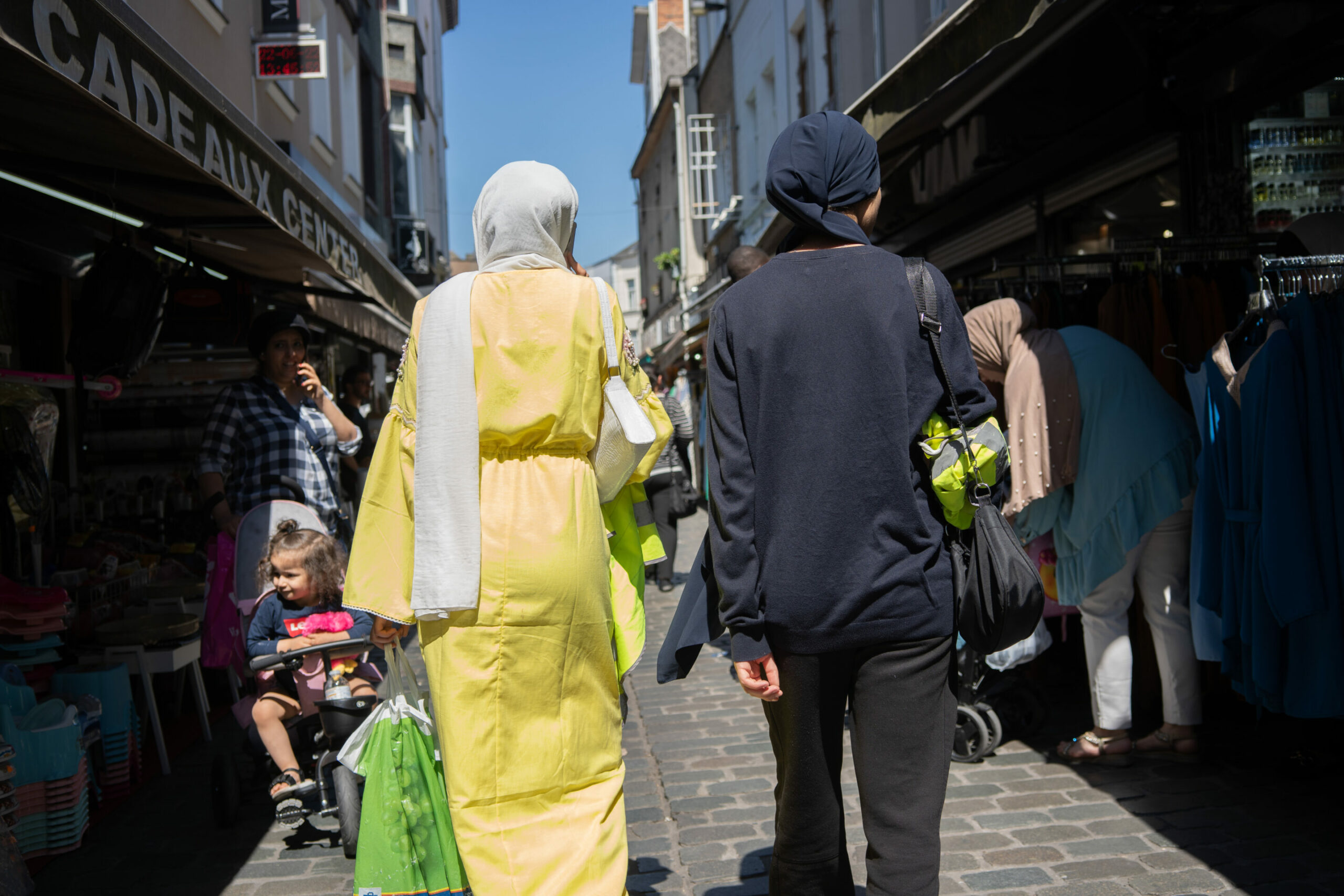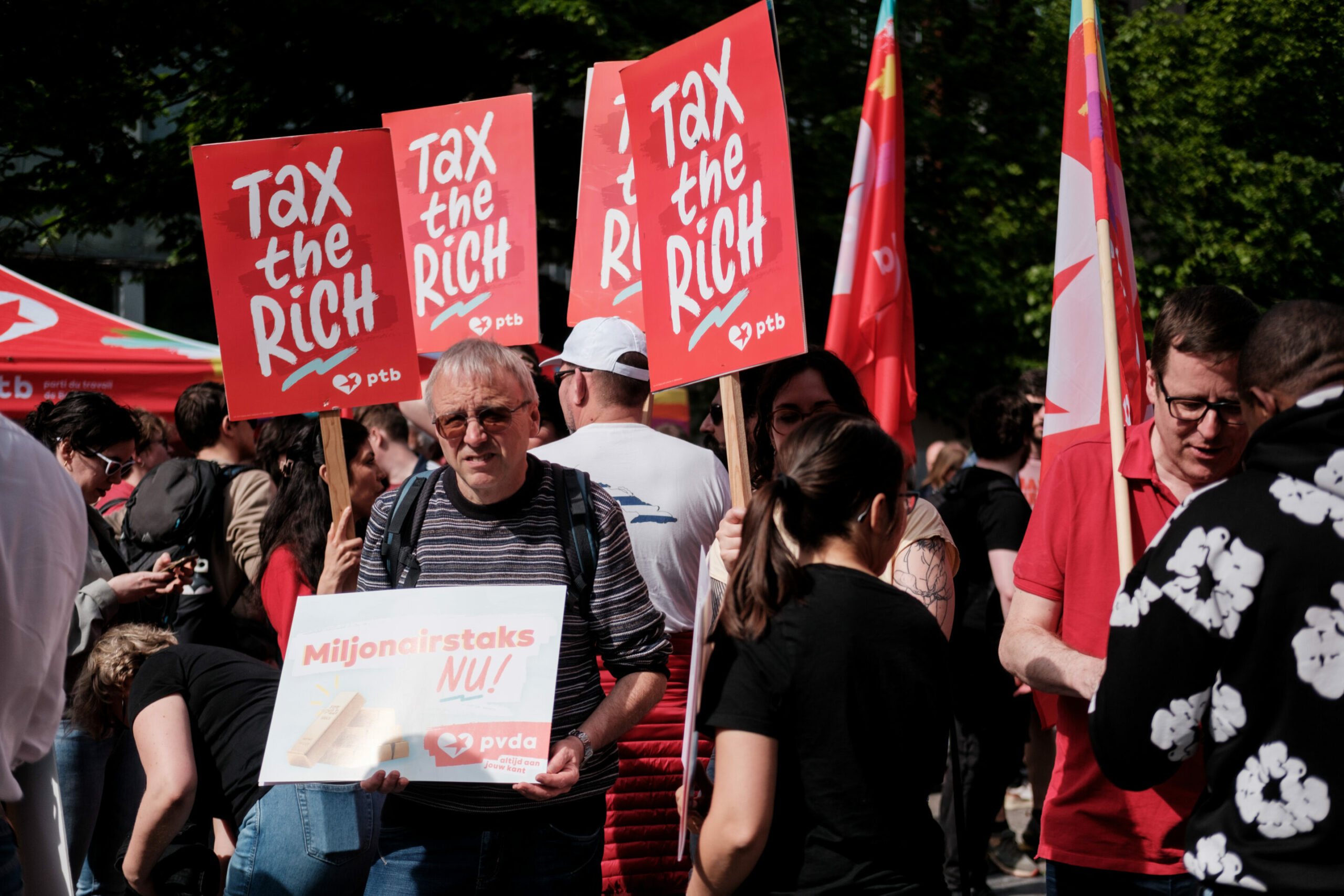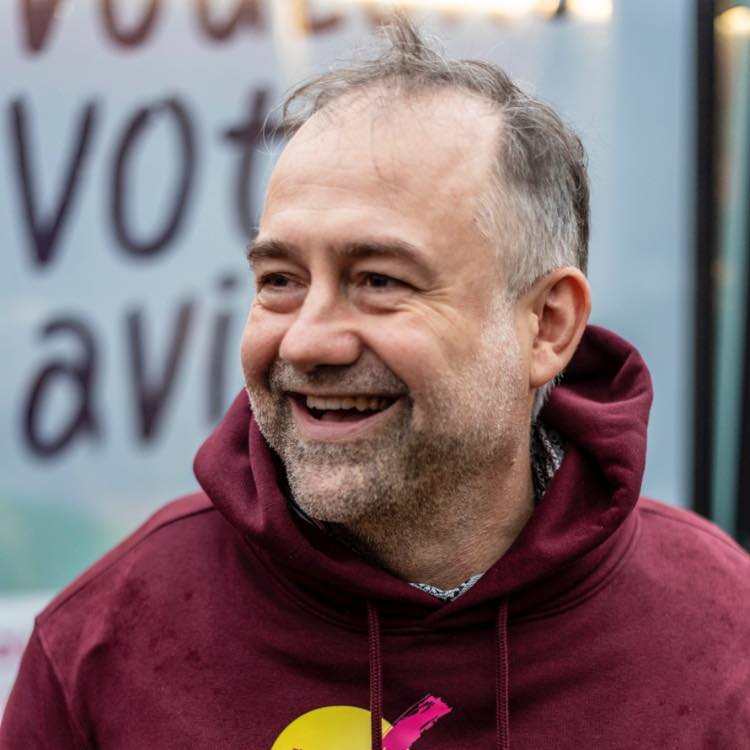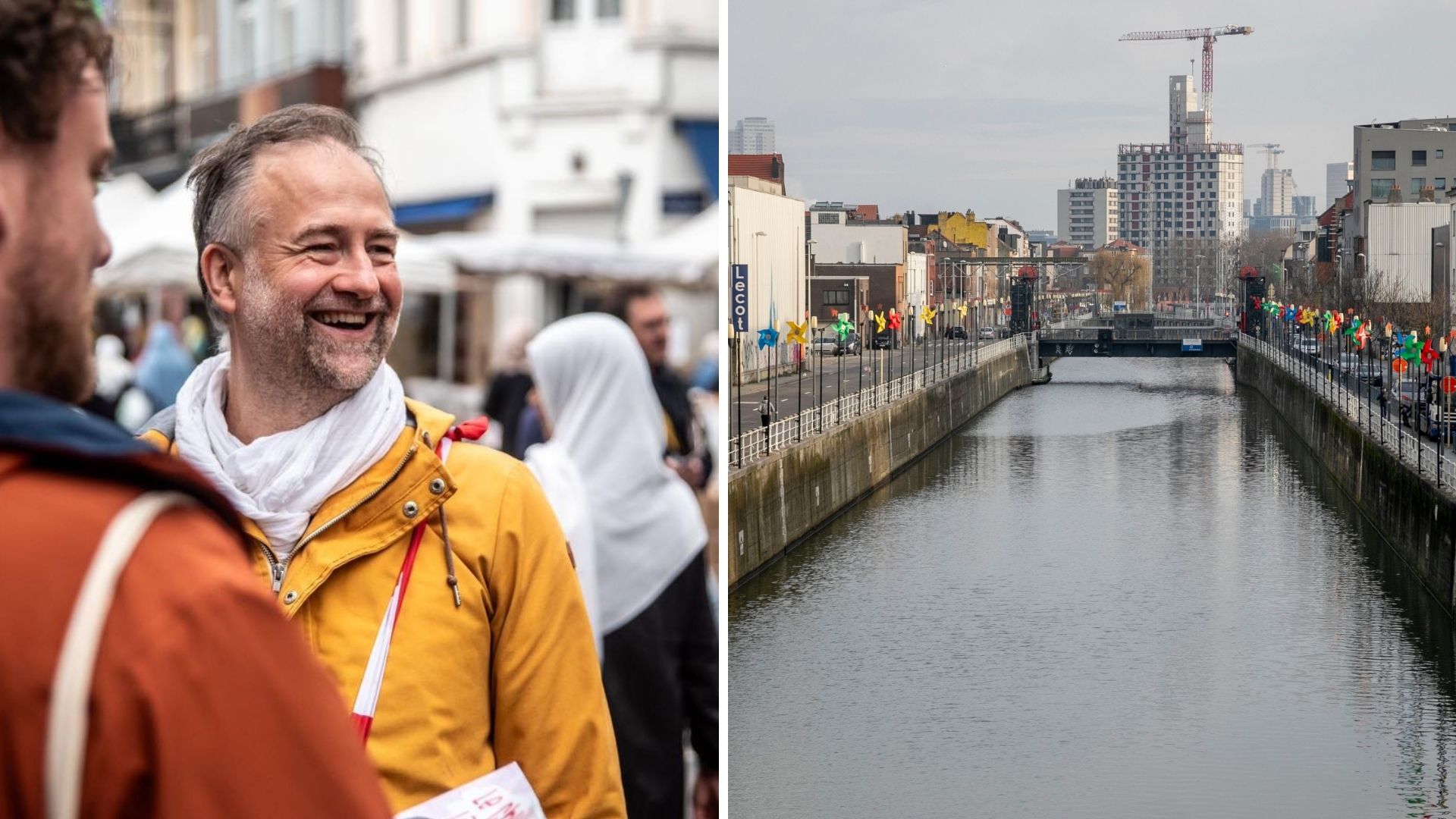The Workers' Party of Belgium, PVDA-PTB, does not have a mayor in any of the 19 communes in the Brussels region, but that could change soon.
The regional elections on 9 June showed that the radical left party is a force to be reckoned with: it came third in the Brussels Capital Region, winning 16 of the 89 parliamentary seats, five more than in 2019. Indeed, PVDA-PTB even won the most votes in three southern municipalities: Anderlecht, Saint-Gilles and Forest. In Molenbeek-Saint-Jean, the party came second, with barely 14 votes behind winners PS.
For the municipal elections in October, Dirk De Block – who was the most popular Dutch-speaking politician in Brussels in the 2018 local elections – will head the list in Molenbeek. He wants to make sure that politicians "listen to the people again," he says.
"We are going to the election with the slogan, 'A coalition of change’. Molenbeek is a great municipality with lots of things going on, but the people of Molenbeek also deserve better. And I think a lot of them are waiting for a change," he says.
Break with status quo
Molenbeek has been governed by liberal MR and socialist PS for almost 40 years, but De Block believes it is ready for a break with the status quo. "And we, as the workers party, are the best guarantee of real change," he says.
The party grew out of student protest groups and has not been shy about its Marxist and Maoist roots. It is the only unitary Belgian party, representing Flanders, Wallonia and Brussels in the federal parliament, where it now has 15 MPs in the 150-seat Chambre of Representatives.
A change in Molenbeek would involve a break in political style, De Block says. “Our elected representatives live on an average worker’s wage, so they don’t do it for the money. We want to make things better for the people, for no other reason than because we are committed to it,” he says.
PVDA-PTB identifies four priorities for Molenbeek: housing, a safe and clean environment, youth and education, and mobility.
Housing first. “More and more Molenbeek residents are moving away because housing is becoming too expensive,” De Block says. To tackle this, PVDA-PTB wants to make certain premiums automatic and ensure that more affordable and social housing initiatives are part of new construction projects in the pipeline. “We can do that. The municipality has the power to do that, but they hardly use it.”

Two women walking down a pedestrian shopping street in Molenbeek-Saint-Jean, Wednesday 22 June 2022. Credit: Belga / Noe Zimmer
Renting a two-bedroom apartment today can easily cost €1,200-1,300, he says. “That is almost a small salary. We believe that it can be done differently, but then the municipality has to make a clear choice and dare to confront the established powers and those big real estate companies by imposing a framework. We want Molenbeek to remain liveable for Molenbeek residents.”
It takes a village
To ensure the commune remains pleasant as well as affordable, the party wants to clean the streets – and Molenbeek has a notorious fly-tipping problem. “People need an accessible way to get rid of large objects, such as broken washing machines or closets. These should be collected more regularly, and also during different hours – such as during weekends,” De Block says.
Most people in Molenbeek – one of the country’s poorest communes – live in a small house or apartment, and do not have a backyard or a car, which means that “it is not always easy for people to organise themselves around these collection times.”

An action 'Tax the rich' of PVDA-PTB in Brussels, on the 1 May, Labour Day, the International Workers' Day, Wednesday 01 May 2024. Credit: Belga / Hatim Kaghat
Molenbeek also needs investment when it comes to safety, De Block says. It has a dubious reputation as a commune forgotten by authorities: many of the Paris and Brussels attackers in 2015-2016 grew up or lived in Molenbeek. Even now, police often fail to respond to calls from Molenbeek residents, De Block says, and when they do come, sometimes there are far too many of them. “We need to invest in community officers, so we can just send two police officers from the area who know the people, who respect the people and are respected in turn. They can solve things correctly.”
As a third priority, PVDA-PTB wants to invest in youth and education: more teachers in schools, better coordination between districts, and a tighter network of carers, volunteers and organisations around the schools. “We want to create a good climate, so everyone works together to help young people succeed. It really does take a village to raise a child,” he says,
Molenbeek has a relatively young population – and a high youth unemployment rate. The party wants the social welfare office, the CPAS/OCMW, to give opportunities to people who have just graduated from school to give them their first work experience right away.
“We think there really needs to be a much harder pull to give young people work experience right away,” he says. “We want to convince companies, private and public, to just help give young people a job and help them to contribute in a positive way. I believe that could make a world of difference.”
Parking woes
The PVDA-PTB’s final priority is to urgently solve Molenbeek’s parking problem. De Block says this could happen if the current parking spaces that are empty – like those in the car parks of companies, agencies and supermarkets – could be opened to the public in the evenings and during weekends.
For example, Tour & Taxis just outside Molenbeek has many parking spaces. “But they prefer to charge high fares. As a result, they have an empty parking lot. Meanwhile, residents have to circle the entire neighbourhood to hopefully find a spot. But everything is statured,” he says.

PTB-PVDA's Dirk de Block
The local authorities, De Block says, need to end to “this privatisation of parking spaces,” tying it to the Good Move mobility plan for the Brussels region, which PVDA-PTB has fiercely criticised.
This criticism has ironically given PVDA-PTB and MR common cause, with both being seen now as parties for drivers - but De Block insists this is a false narrative. “We are the party of the working class. And by that, I mean the entire working class. Of the people working nine-to-five office jobs but also of those working in shifts in factories.”
The latter group, he stresses, should also be able to live in Brussels, even if they must go to industrial zones outside the city for their job. “They often do not have a choice but to use a car, as these factories are hard to get to by public transport – especially when working night shifts for example. We want a city where everyone still has their place.”
De Block does not believe “in a slick middle-class city” where there is no place for people who work with their hands. No one is against safer and more spacious streets, more greenery and less transit traffic, he adds.
“And we believe that is possible,” he says. “But then we need to find a solution to the need for parking spaces. Brussels is very socially diverse, and we should therefore be careful not to gentrify it, not in terms of housing or in terms of mobility.”
Related News
- 'Mafias exploit poverty': Inside a Brussels mayor's war on drugs
- Can Philippe Close speak for the City of Brussels?
- 'I'm everyone's mayor': The man fighting for community and the climate in Ixelles
- The mayor of 'the most beautiful commune in Brussels'
- The mayor of Belgium's poorest commune has no regrets

